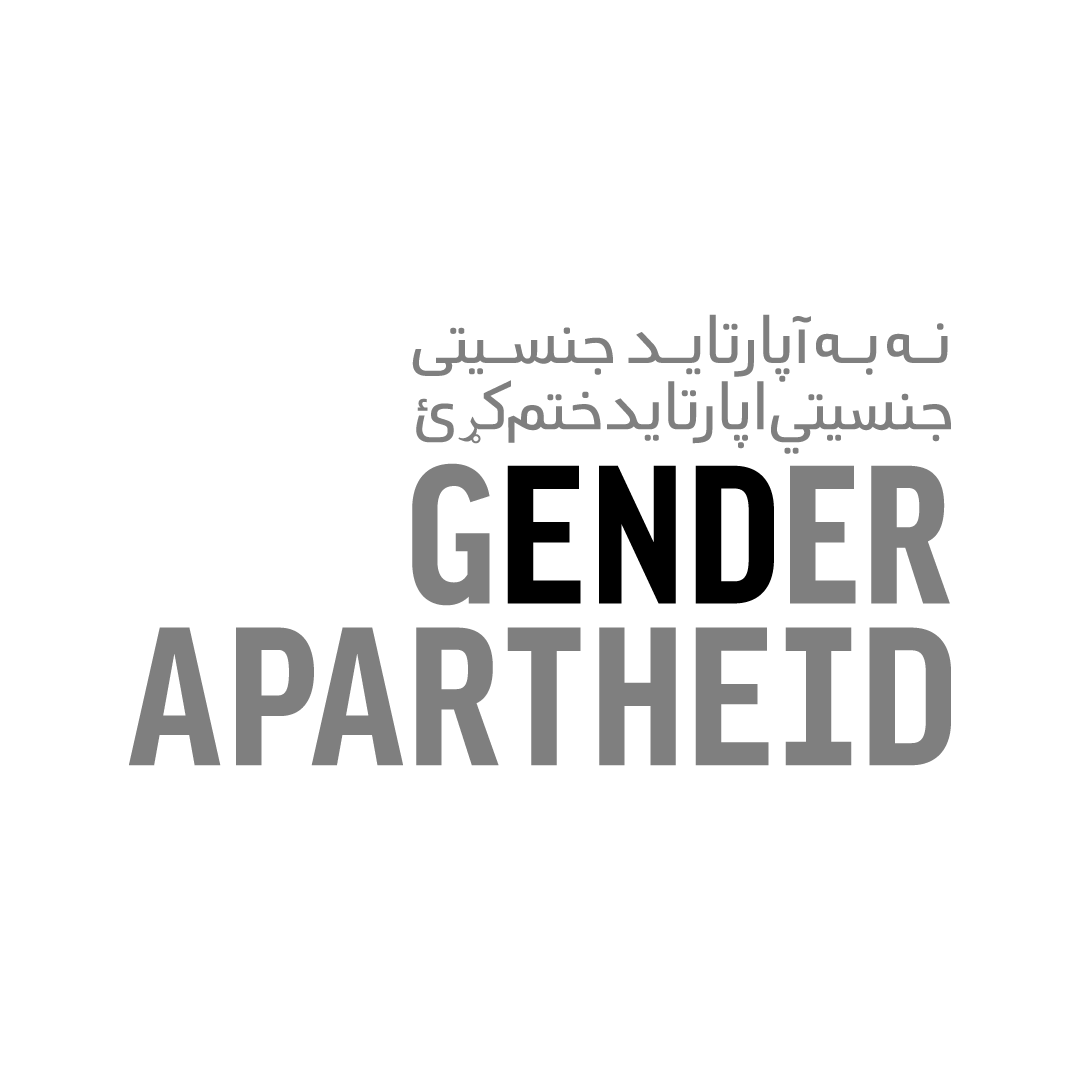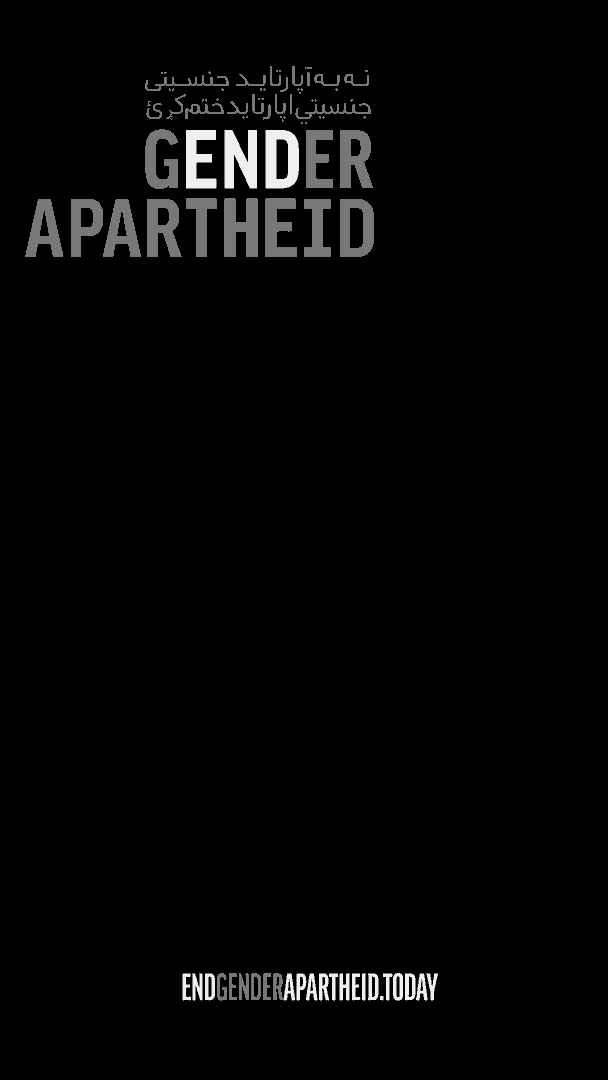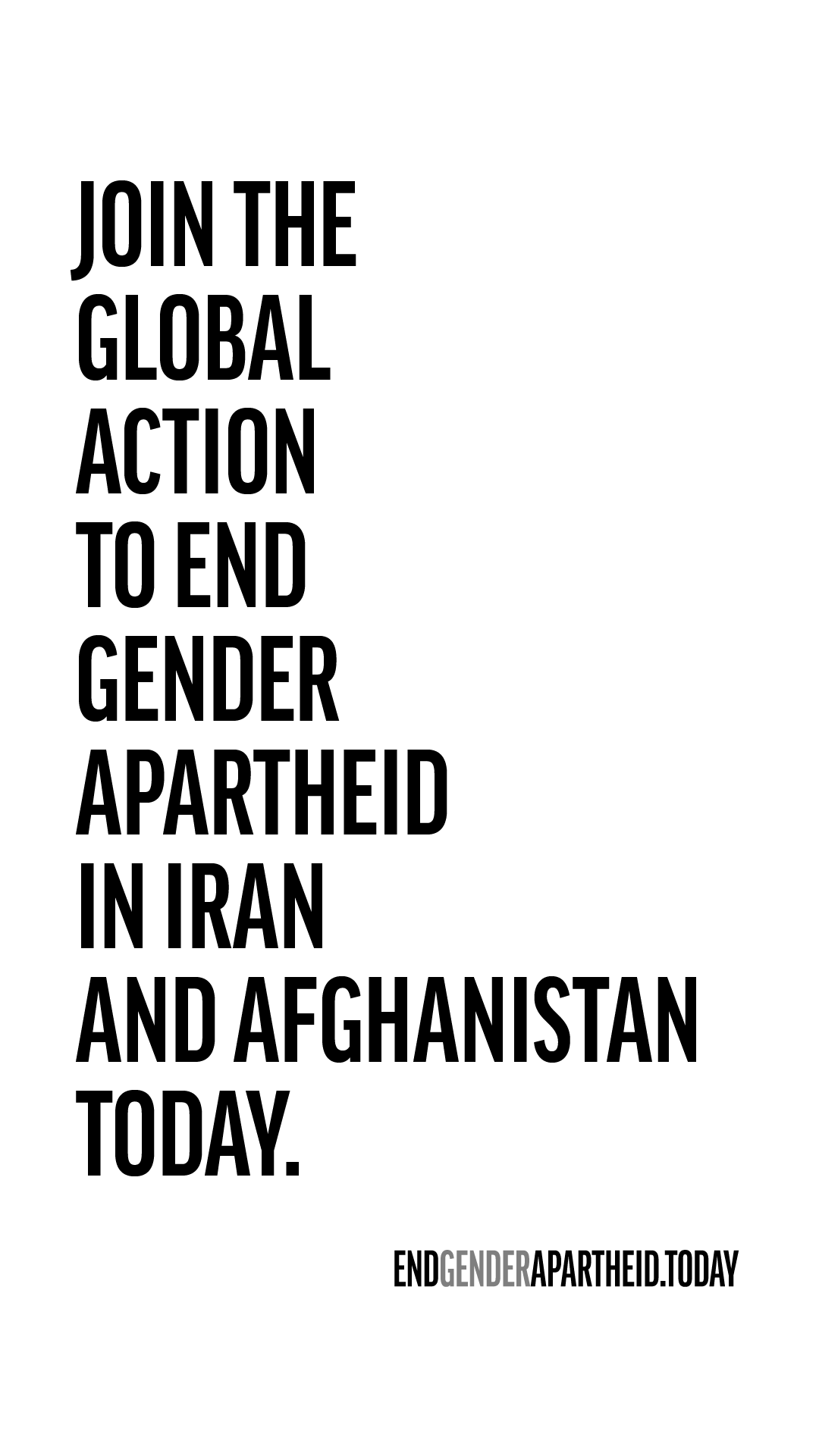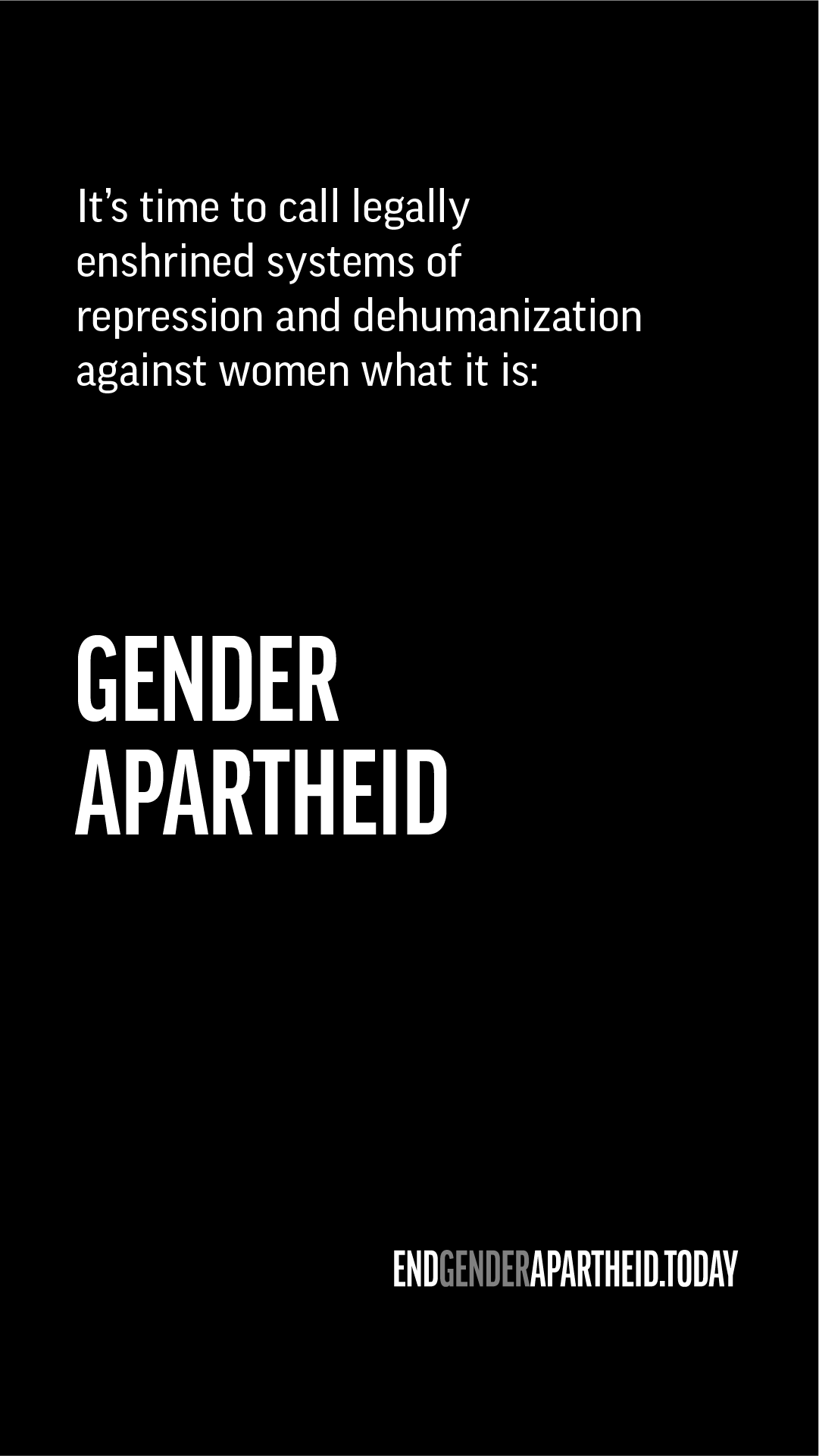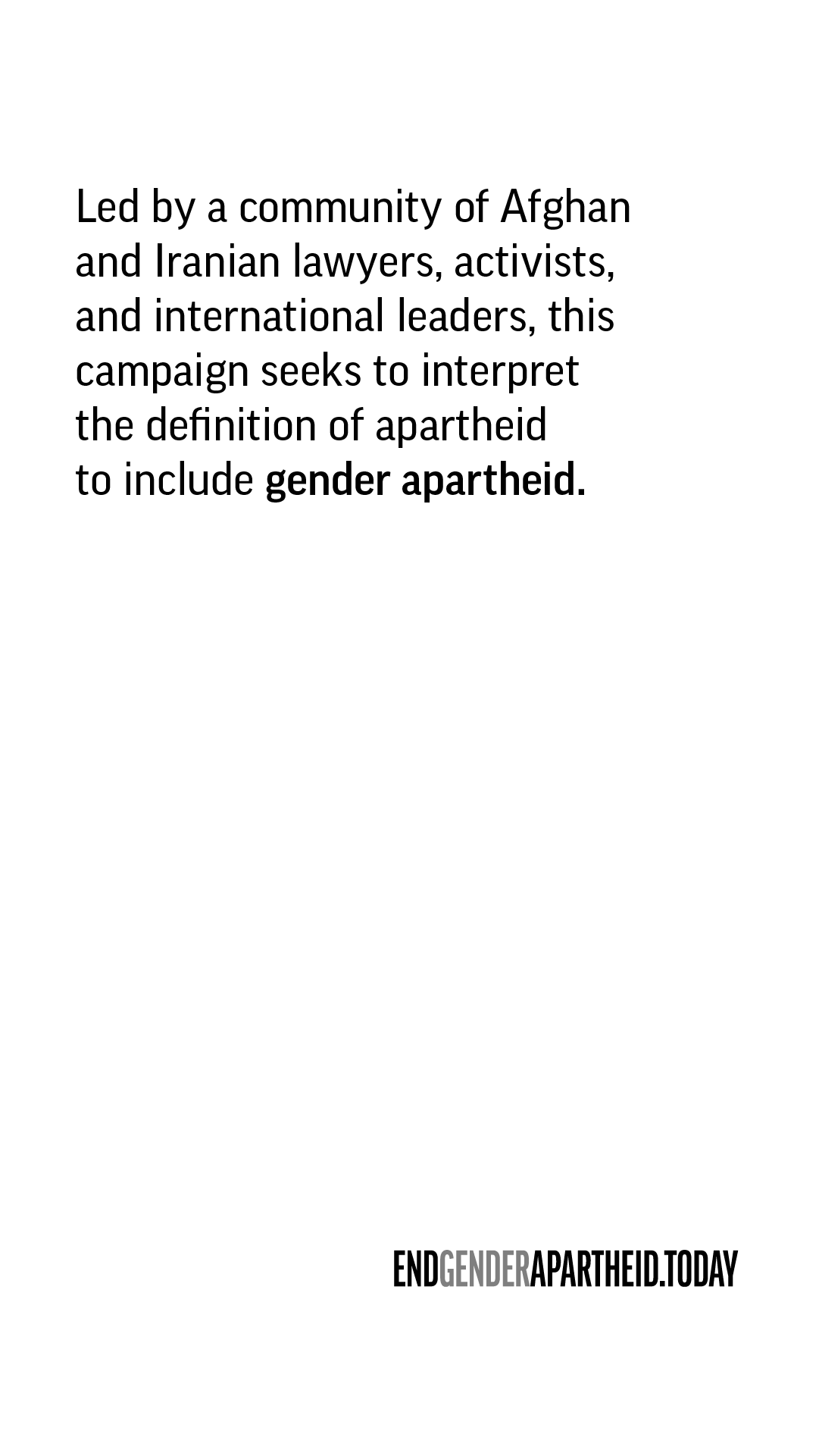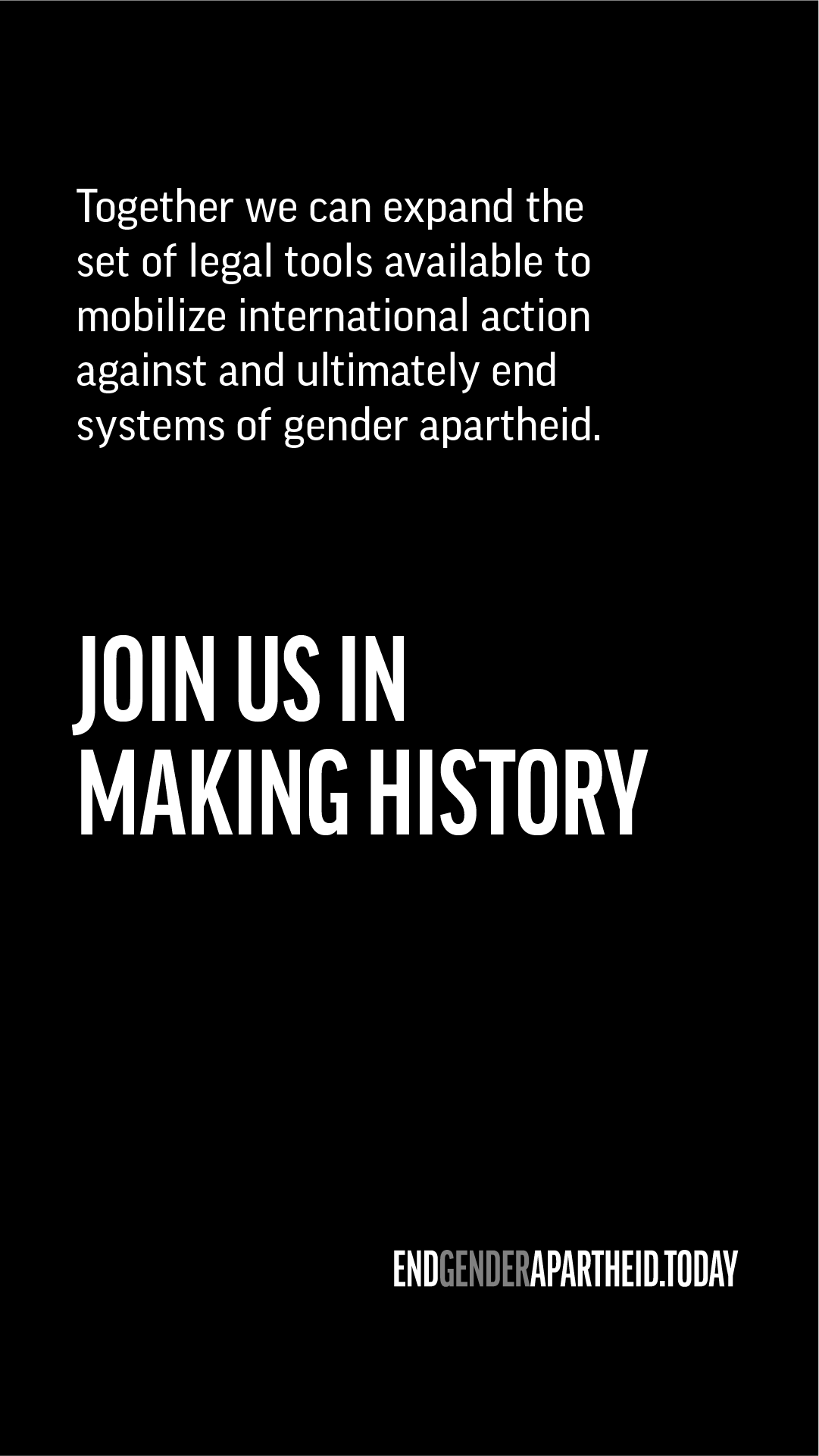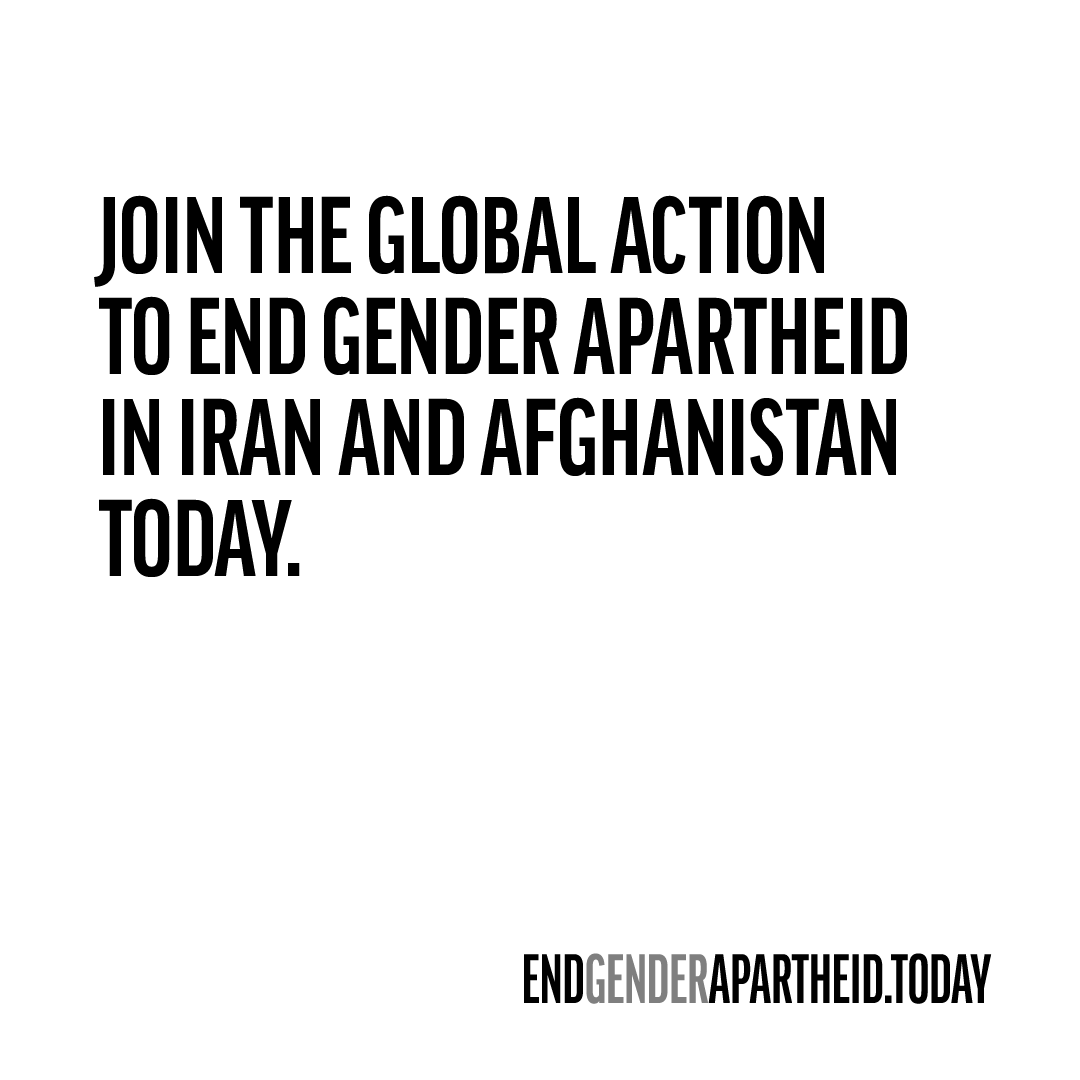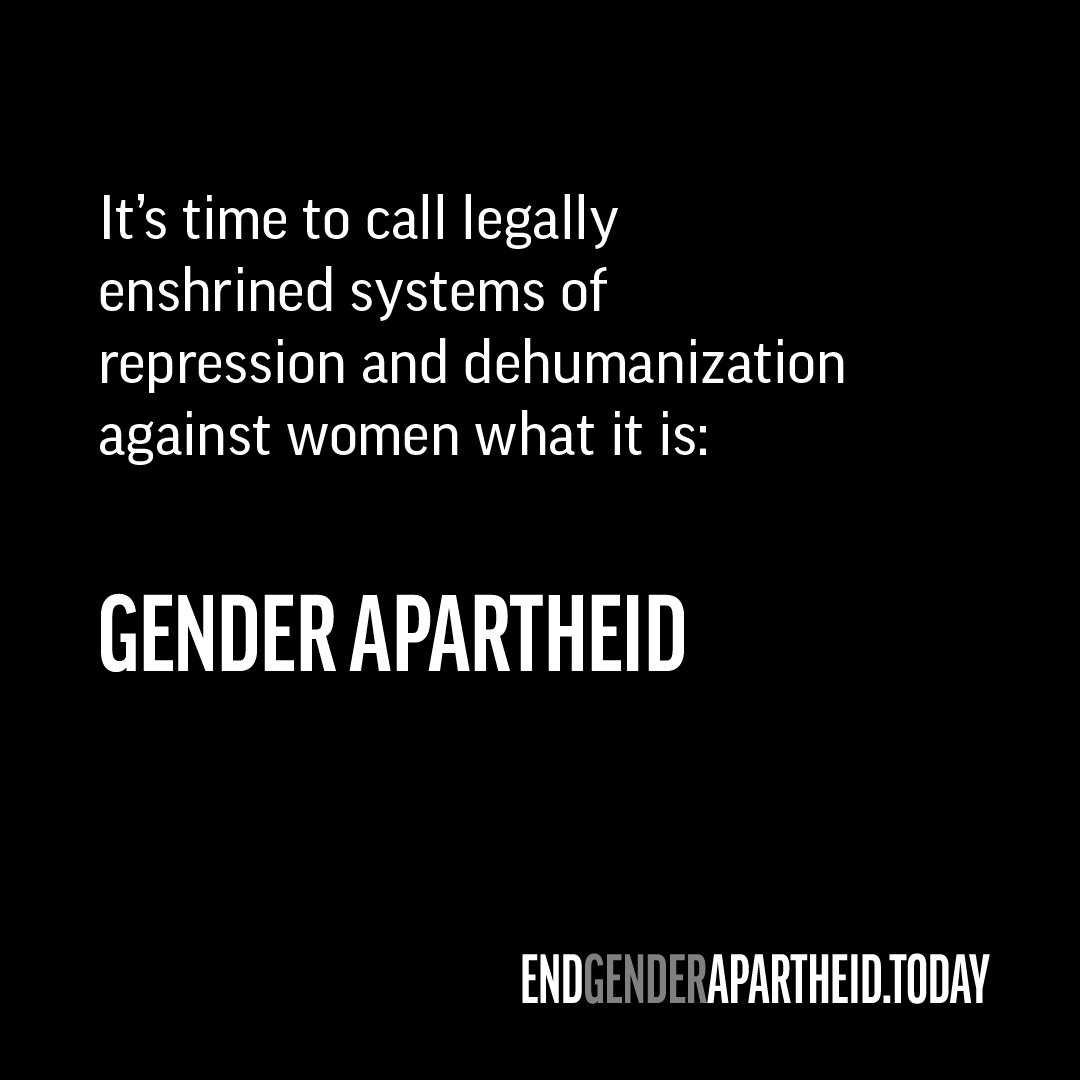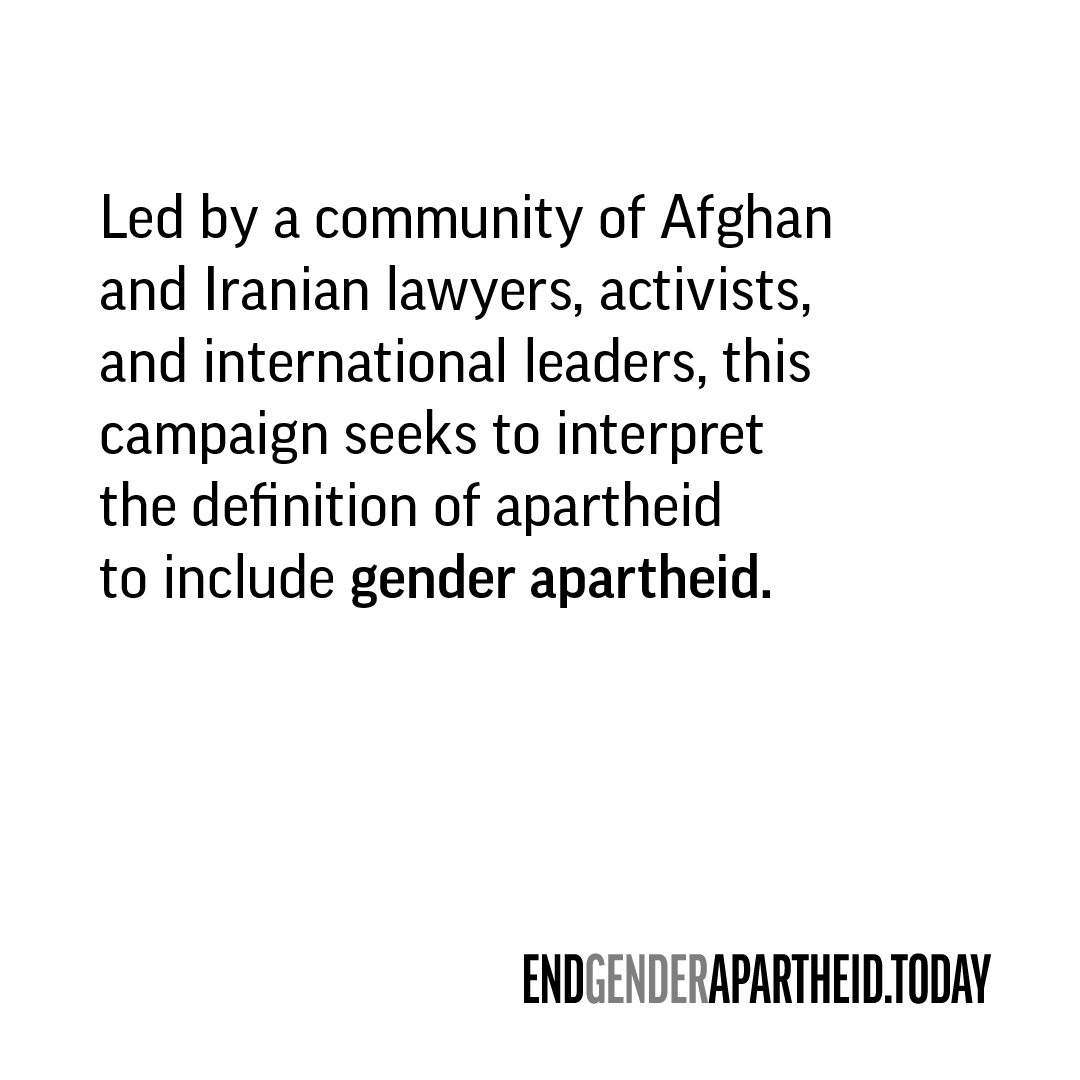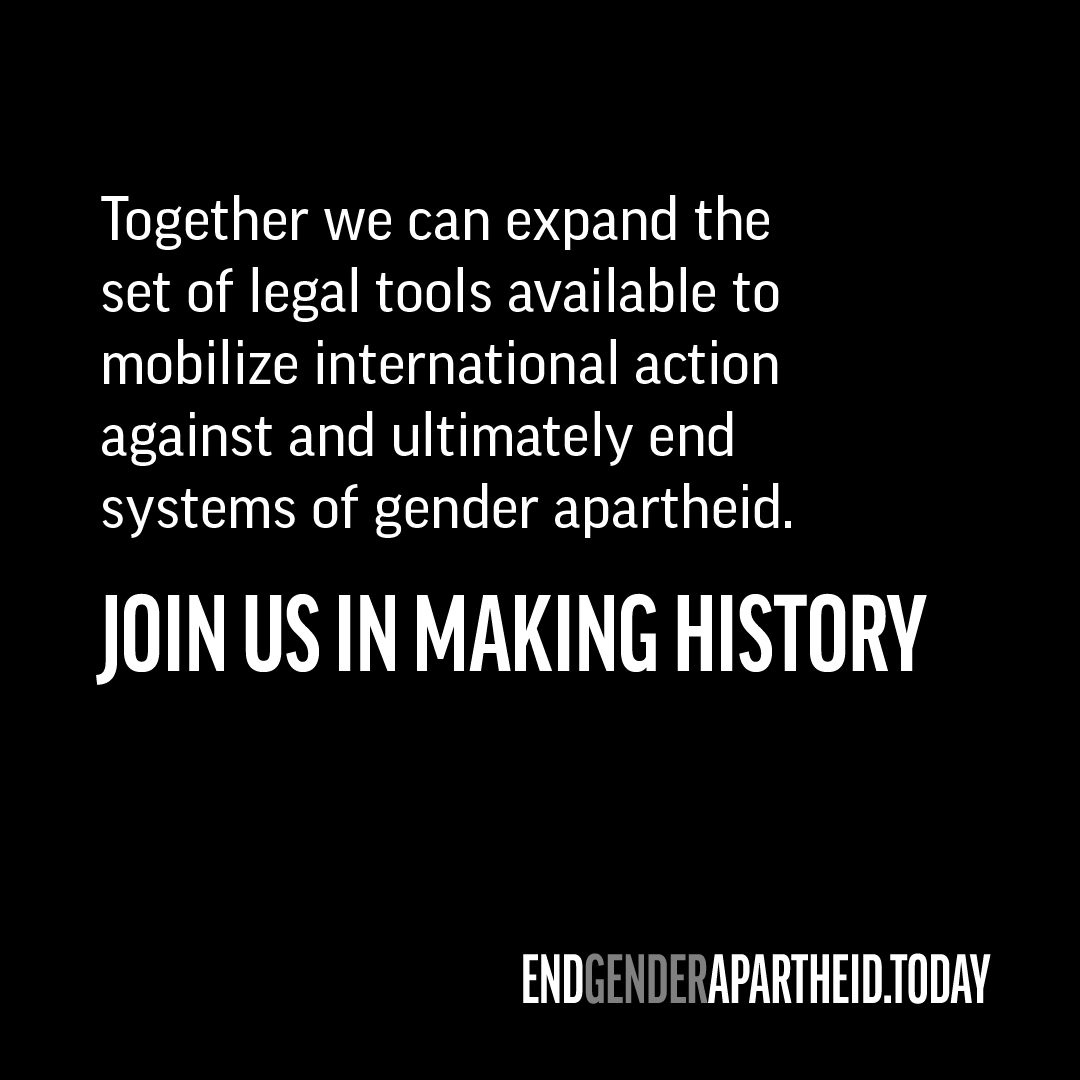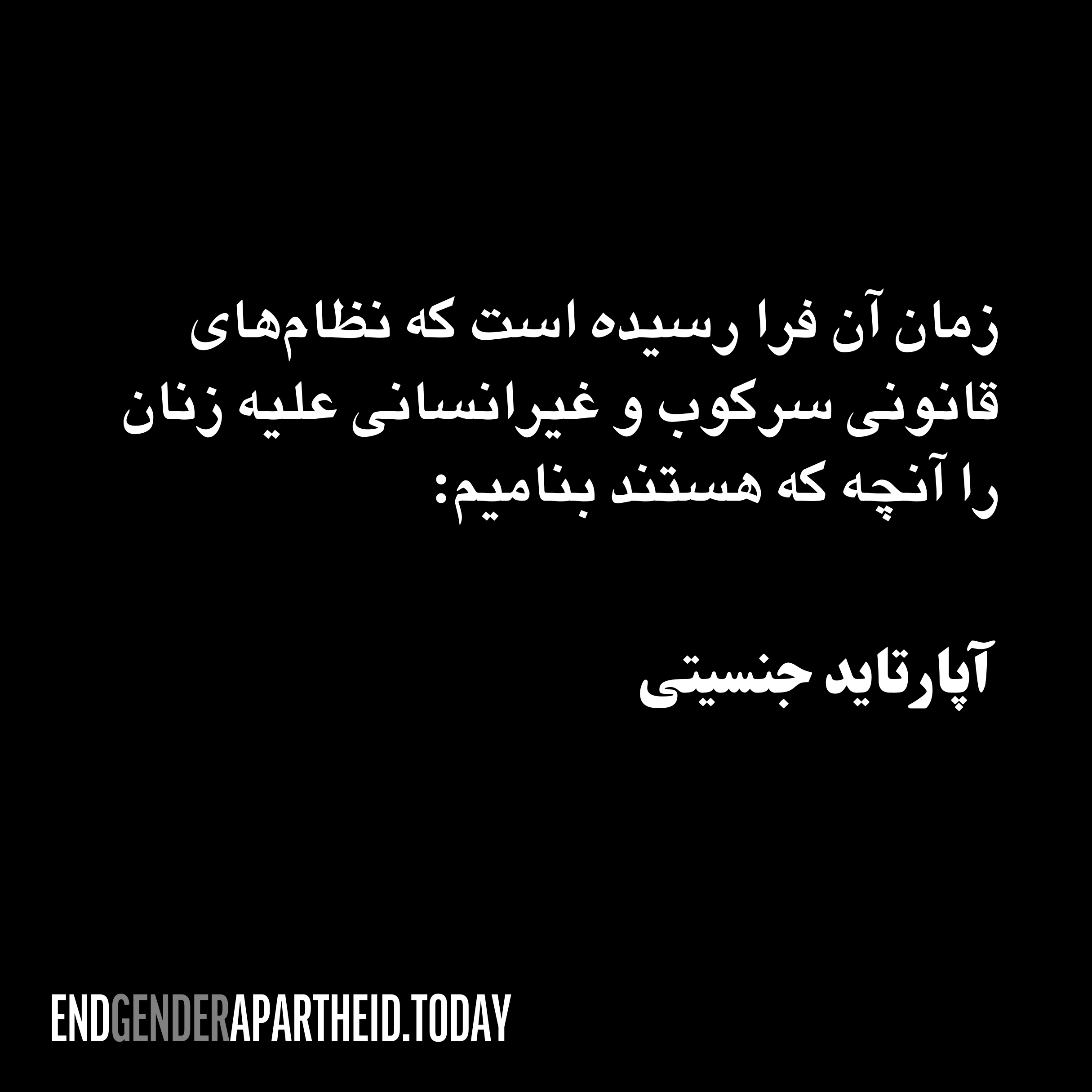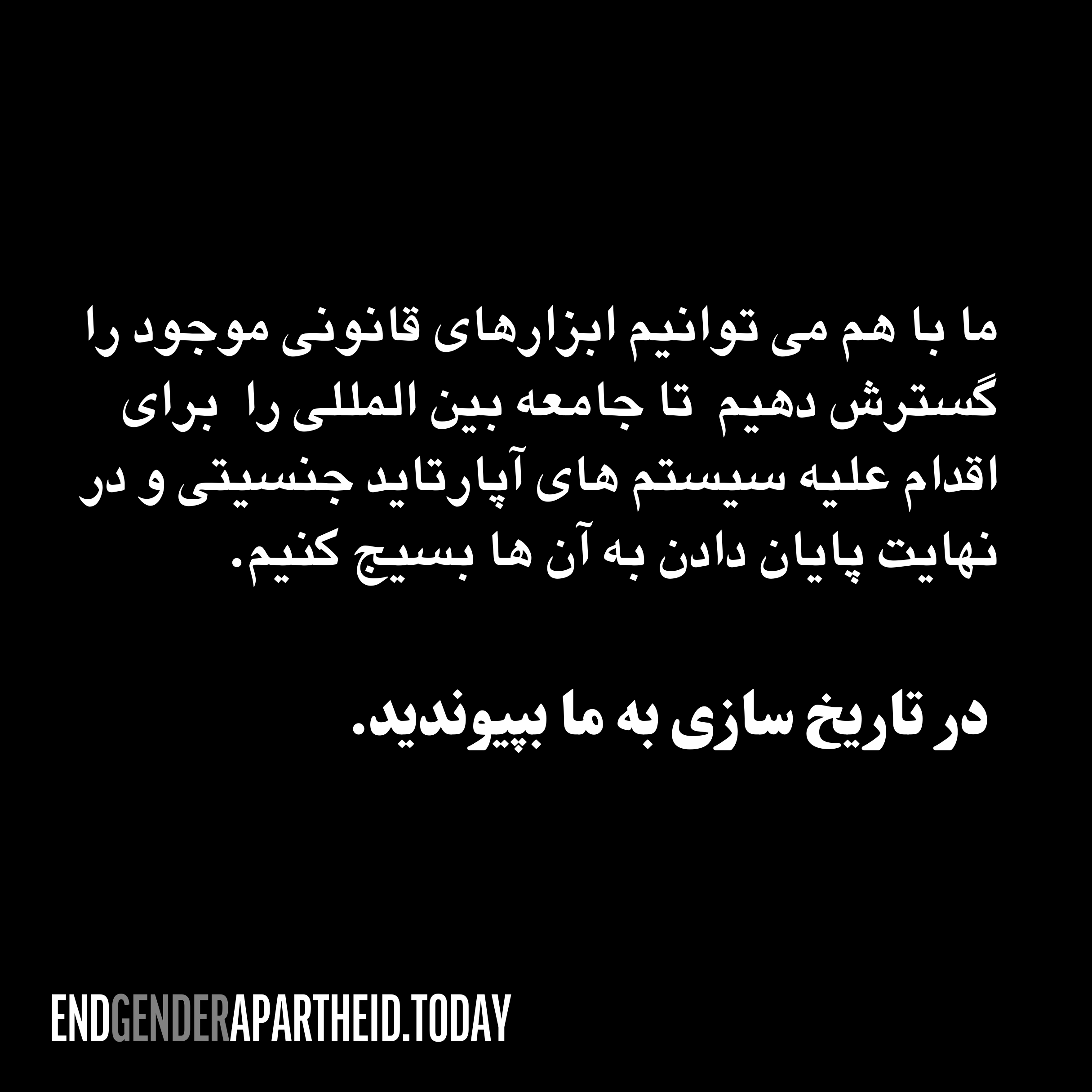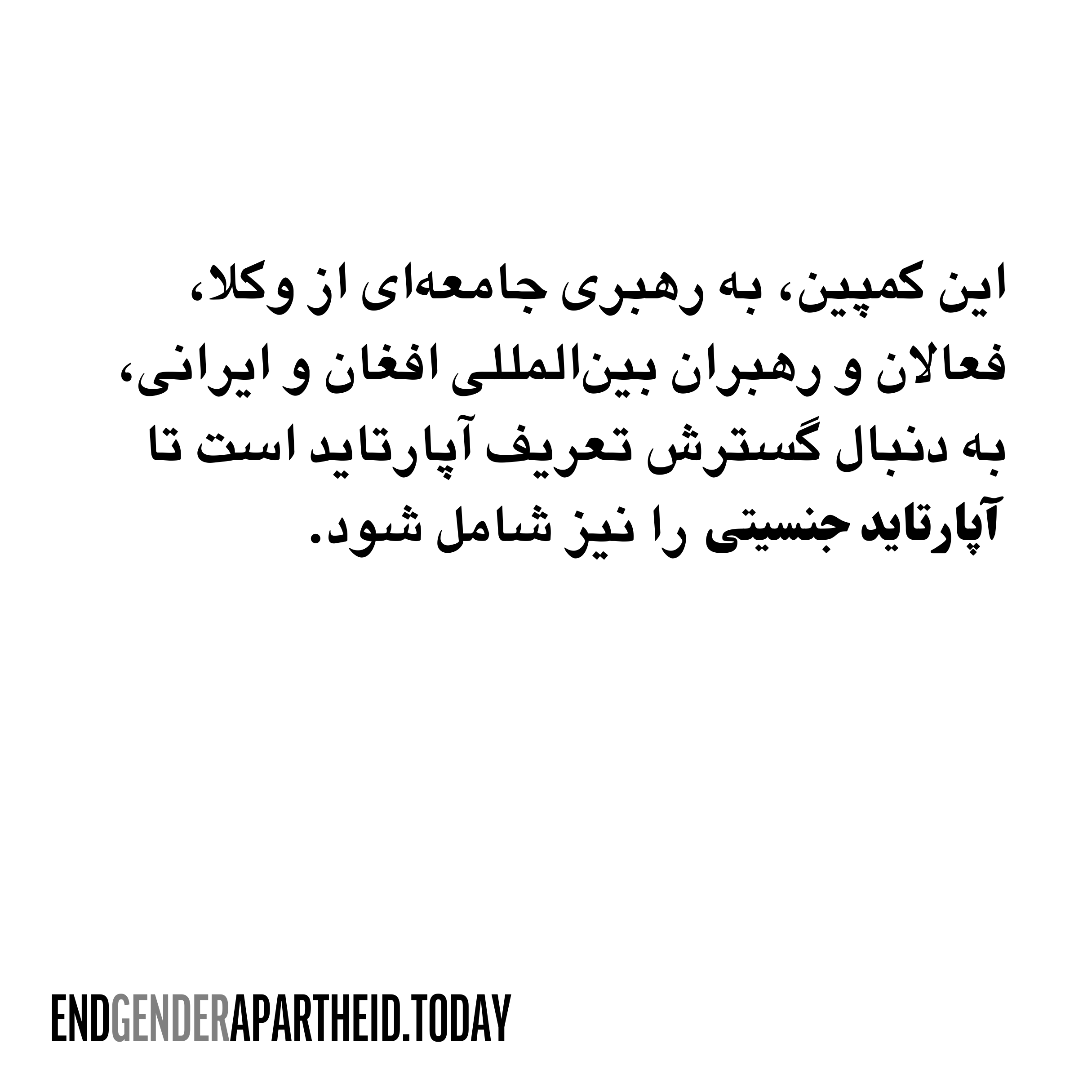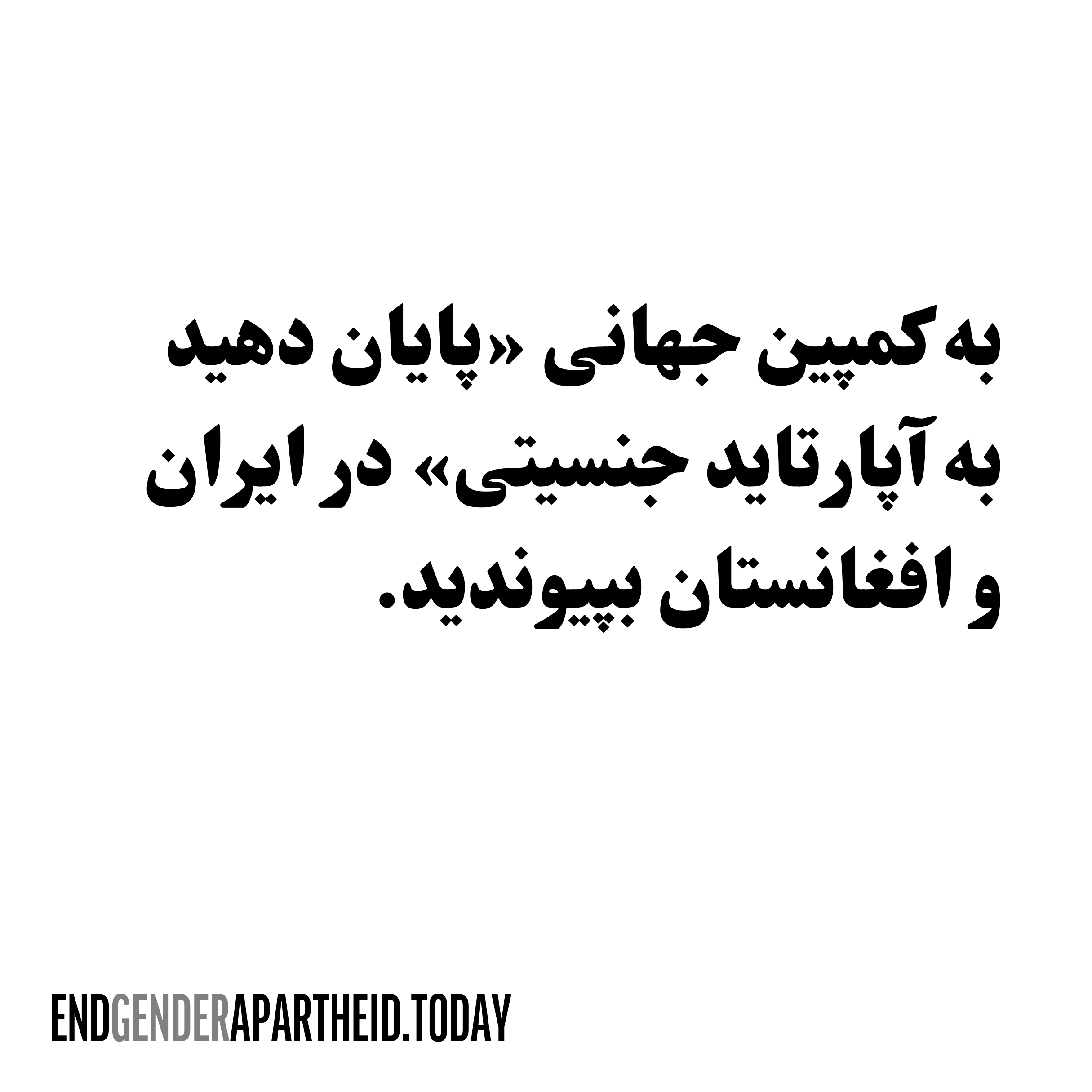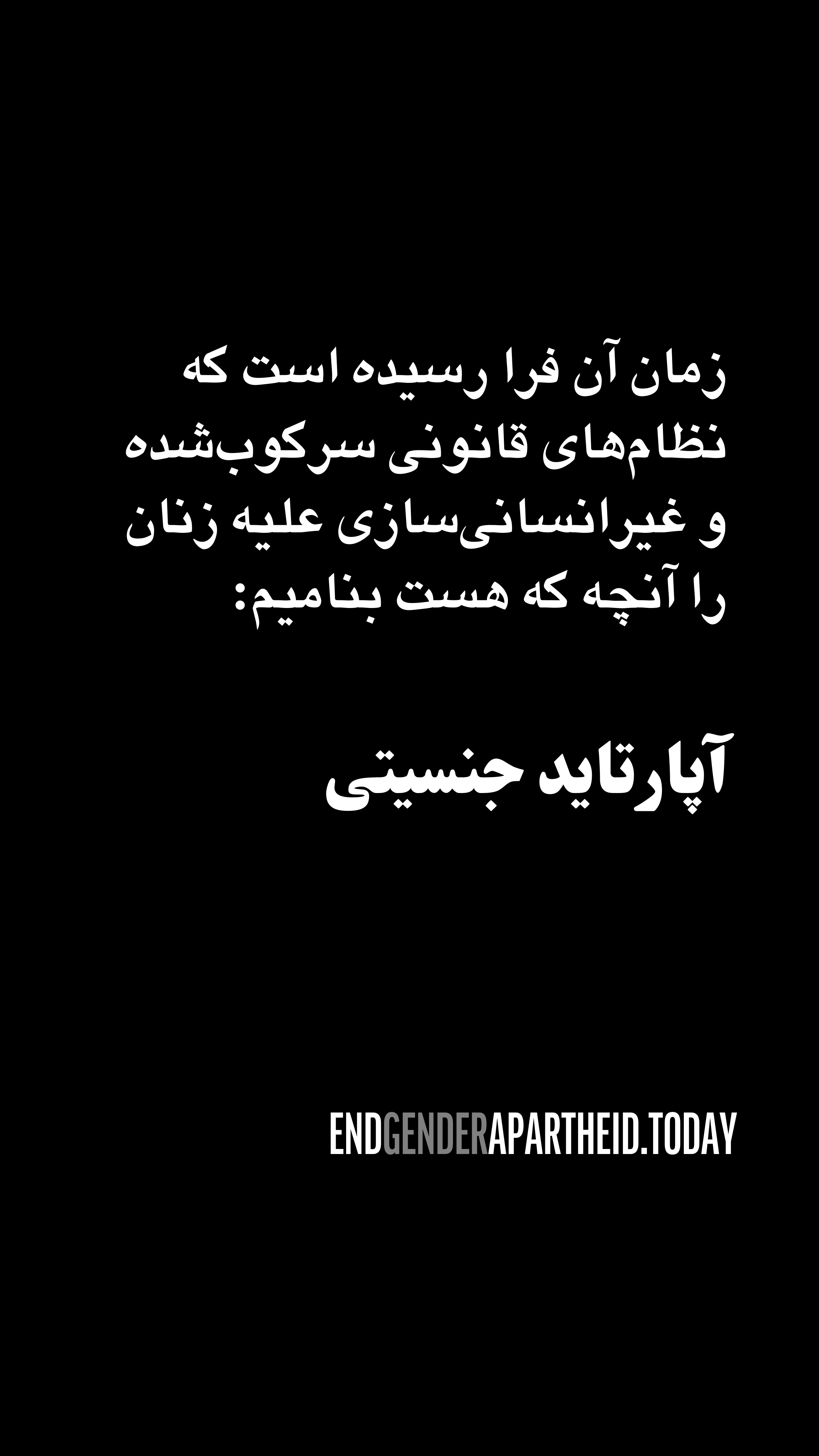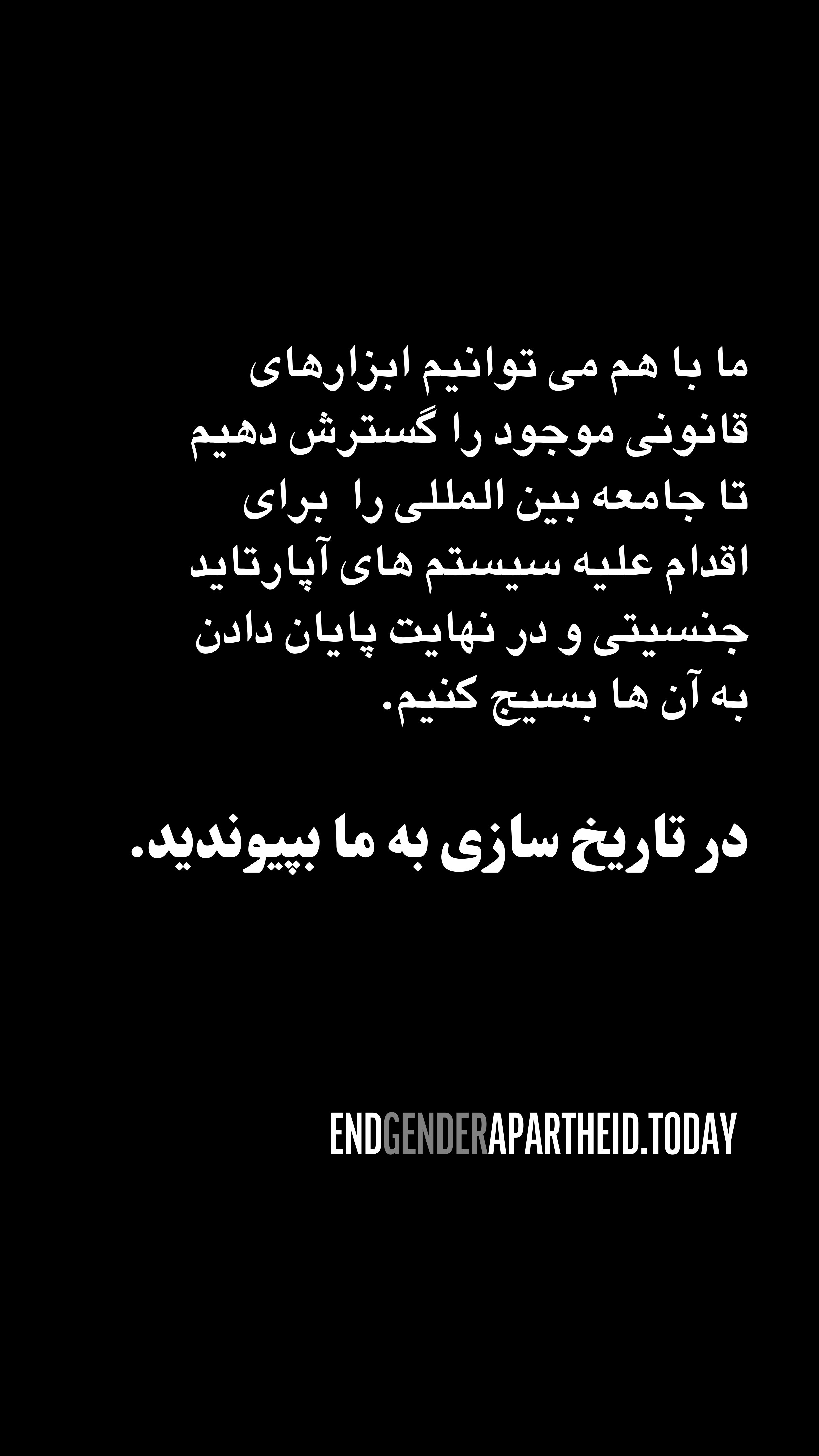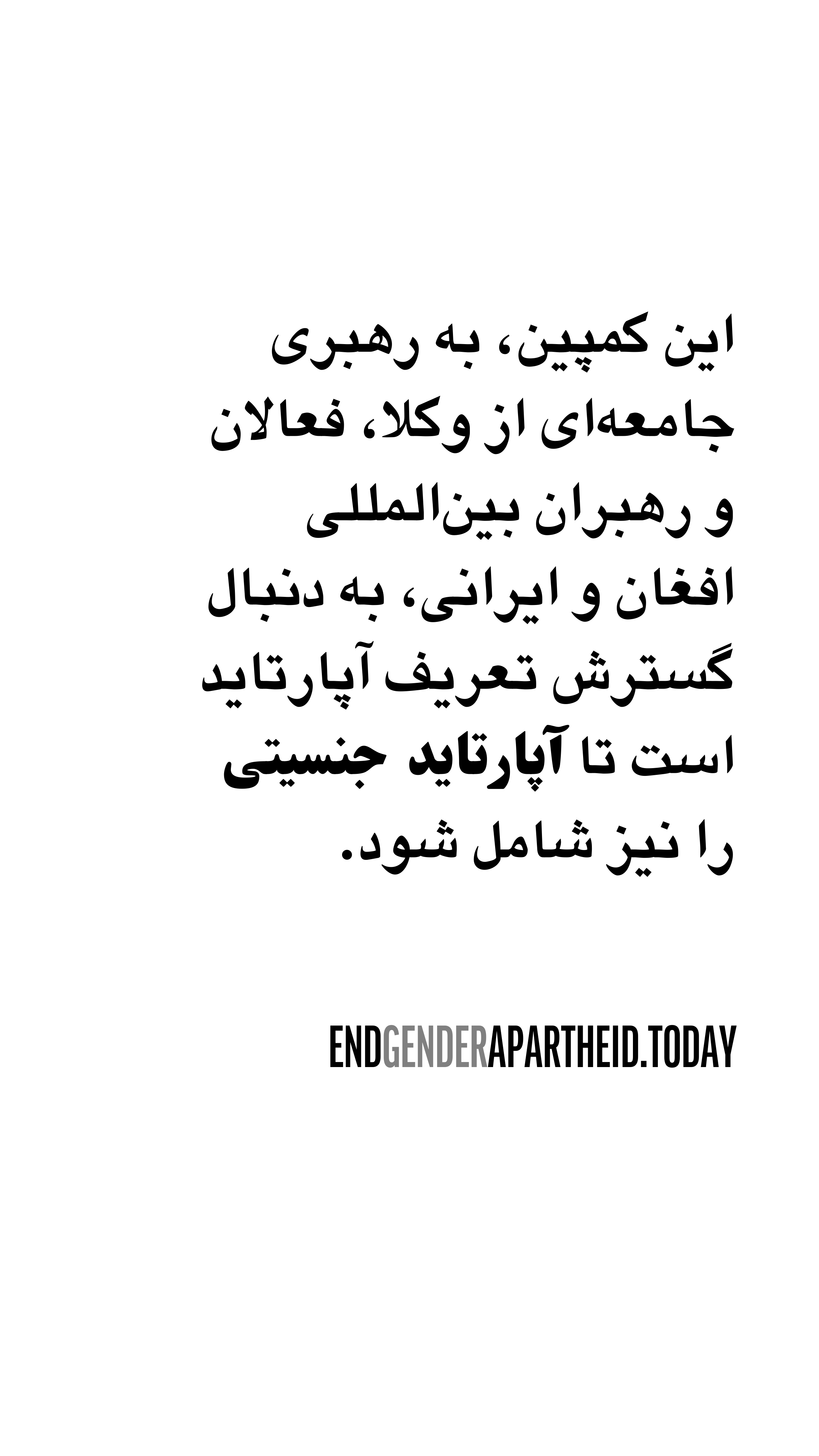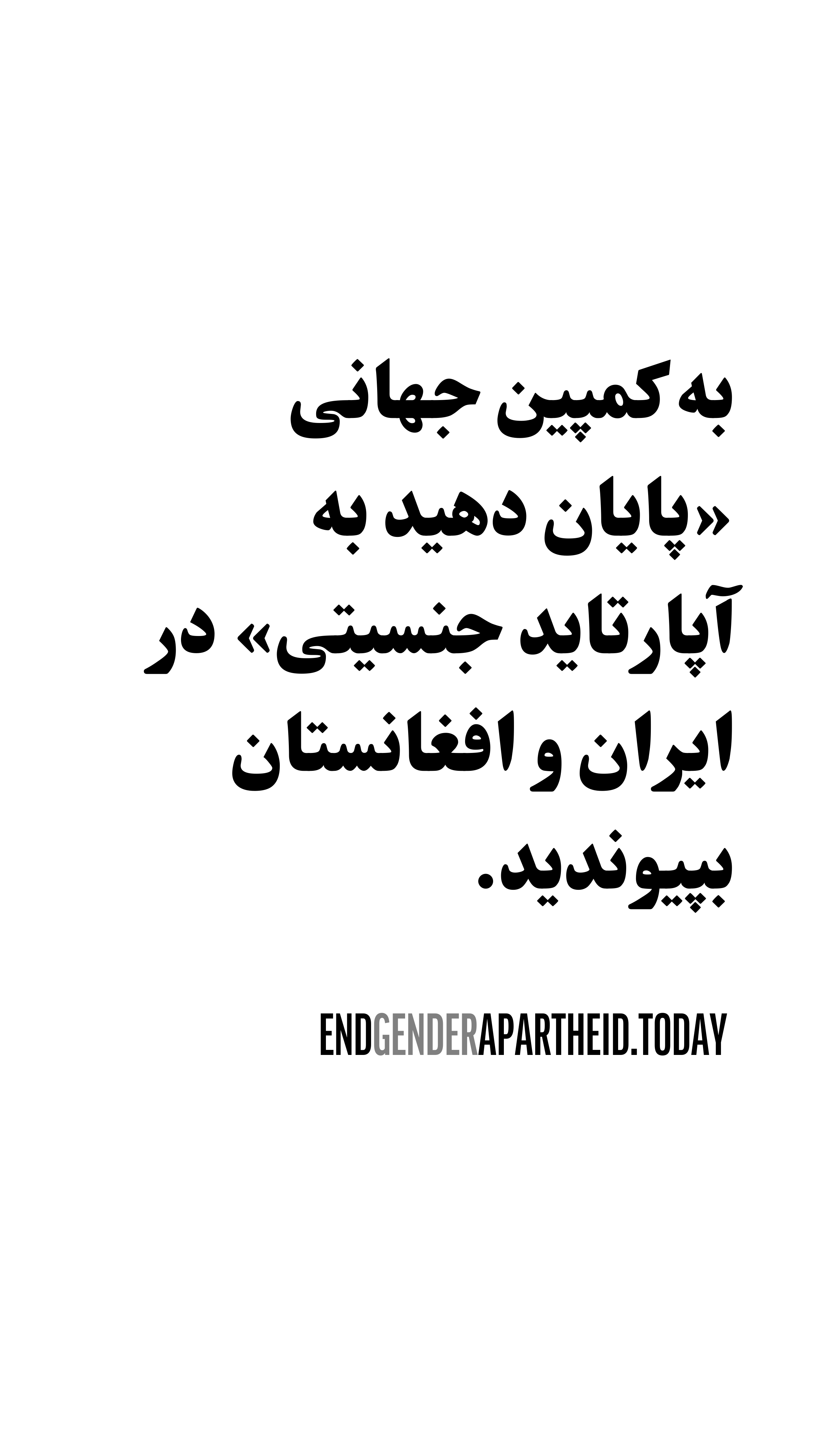Why
The women and girls of Afghanistan and Iran have united in a call to end gender apartheid.
In Afghanistan, the Taliban has launched an extreme, systematic gender-based war, issuing and enforcing over 100 decrees that severely restrict the daily lives of women, girls, and gender diverse persons—systematically cutting them off from equal education, work, healthcare, justice, political power, and movement, erasing them from public life, and relegating them to child bearers, child rearers, and free domestic labor at home.
In Iran, the Islamic Republic systematically oppresses women, girls, and gender diverse persons through laws and policies that restrict their rights in marriage, property, work, justice, political office, travel, and lifestyle—using their bodies and freedoms as tools of domination.
This treatment goes far beyond the gender-based discrimination seen in every country around the world. It has a name: GENDER APARTHEID.


